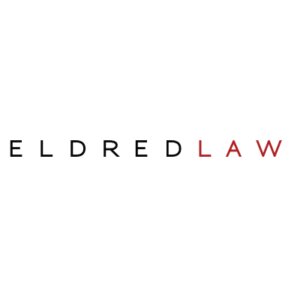Best General Litigation Lawyers in Southampton
Share your needs with us, get contacted by law firms.
Free. Takes 2 min.
List of the best lawyers in Southampton, United Kingdom
About Litigation Law in Southampton, United Kingdom:
Litigation law in Southampton, UK, involves the resolution of disputes across a wide variety of areas like commercial issues, employment disputes, insurance disputes, and more. It is an intricate system that serves to protect the rights of individuals and organizations, enabling them to engage in legal proceedings for dispute resolution. For both claimants and defendants, understanding and maneuvering within this system can often be a complex process, requiring the assistance of legal professionals specializing in litigation.
Why You May Need a Lawyer:
Legal guidance is essential in litigation for various reasons. If you are involved in any dispute that could lead to a court proceeding, a lawyer can help safeguard your rights and ensure the best possible outcome. This could involve litigation-related situations such as debt recovery, breach of contract disputes, property disputes, employment disputes, or inheritance contentions. A lawyer can guide you through every step of a litigation proceeding, from filing or responding to a claim, to navigating through the trial process, or facilitating settlements and negotiations.
Local Laws Overview:
Southampton, being under the jurisdiction of England and Wales, follows the same civil and commercial litigation laws as the rest of the country. The UK legal system is based on precedent, meaning that past court decisions guide future rulings. Key aspects relevant to litigation include the Limitation Act (which governs the time within which a legal action should commence) and the Civil Procedure Rules (that set forth the rules for conducting a lawsuit). The relevant court for Southampton for most litigation is the Southampton Combined Court Centre, housing both the Crown Court and the County Court.
Frequently Asked Questions:
1. How do I know if I need to engage in litigation?
If you're involved in a serious dispute that cannot be resolved through negotiation, mediation, or arbitration, you might need to engage in litigation.
2. How long does litigation typically take?
The duration of litigation can vary greatly and is influenced by factors such as the complexity of the case, the willingness of the parties to negotiate, and more. It can range from a few months to several years.
3. What happens if I lose in court?
If you lose in court, typically you may have to comply with the court's judgment, which may include monetary compensation, delivering or collecting goods, or more. In addition, you may also have to pay the court costs and the legal costs of the other party.
4. Can I appeal a court decision?
Yes, you can appeal a court decision, but only on the basis of a point of law, a point of fact, or the amount of damages awarded.
5. For how long can I sue someone?
The Limitation Act details periods ranging from 1 to 12 years, depending on the type of litigation. For example, for debt recovery or breach of contract, the limitation is generally six years from the occurrence of the breach.
Additional Resources:
You can approach the Citizens Advice Bureau for free advice, or consult the governmental website for Southampton City Council for information on local regulations and resources. In addition, The Law Society of England and Wales and the Solicitors Regulation Authority can provide information on solicitors specialized in litigation.
Next Steps:
If you determine that you need legal assistance with litigation, you should find a suitable solicitor who specializes in litigation law. You can do this through referrals, research, or through legal professional bodies. Once you find a solicitor, you should prepare all relevant documents and be clear on your goals for litigation. It is important to keep open lines of communication with your solicitor throughout the process.
Lawzana helps you find the best lawyers and law firms in Southampton through a curated and pre-screened list of qualified legal professionals. Our platform offers rankings and detailed profiles of attorneys and law firms, allowing you to compare based on practice areas, including General Litigation, experience, and client feedback.
Each profile includes a description of the firm's areas of practice, client reviews, team members and partners, year of establishment, spoken languages, office locations, contact information, social media presence, and any published articles or resources. Most firms on our platform speak English and are experienced in both local and international legal matters.
Get a quote from top-rated law firms in Southampton, United Kingdom — quickly, securely, and without unnecessary hassle.
Disclaimer:
The information provided on this page is for general informational purposes only and does not constitute legal advice. While we strive to ensure the accuracy and relevance of the content, legal information may change over time, and interpretations of the law can vary. You should always consult with a qualified legal professional for advice specific to your situation.
We disclaim all liability for actions taken or not taken based on the content of this page. If you believe any information is incorrect or outdated, please contact us, and we will review and update it where appropriate.













